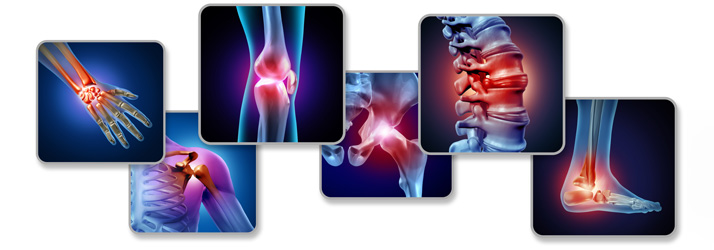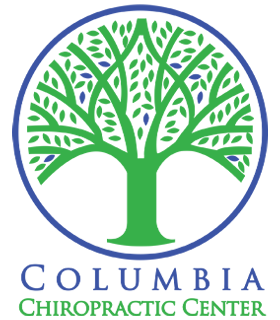Are Neuropathy & Radiculopathy The Same? Understanding The Differences & How Chiropractic Care Can Help In Columbia MO
Are Neuropathy and Radiculopathy the Same? Understanding The Differences & How Chiropractic Care Can Help In Columbia MO

When it comes to nerve-related conditions, two terms often come up in conversation: neuropathy and radiculopathy. While both of these conditions involve nerve pain and dysfunction, they are not the same and affect different parts of the body in distinct ways. In this blog post, we will explore the differences between neuropathy and radiculopathy, how each condition can affect your daily life, and how chiropractic care in Columbia MO can help relieve the symptoms of these conditions.
At Columbia Chiropractic Center, we are offering a new patient special for neuropathy care for just $49, which includes a consultation, thermal imaging, a report of findings, and x-rays if necessary. Read on to learn more about how we can help you manage these conditions naturally and effectively.
What Is Neuropathy?
Peripheral neuropathy, often referred to simply as neuropathy, occurs when the peripheral nerves (nerves outside the brain and spinal cord) are damaged. These nerves are responsible for sending signals between the brain and the rest of the body, controlling things like sensation, movement, and organ function. When these nerves become damaged or dysfunctional, it can lead to a range of symptoms.
Common Causes of Neuropathy
Neuropathy can be caused by a variety of factors, including:
- Diabetes: Diabetic neuropathy is one of the most common forms of neuropathy. High blood sugar levels can damage the nerves, especially in the hands and feet.
- Chemotherapy: Certain cancer treatments, particularly chemotherapy, can cause nerve damage.
- Alcohol Abuse: Excessive alcohol consumption can lead to neuropathy by damaging the nerves.
- Infections and Autoimmune Diseases: Conditions such as lupus, rheumatoid arthritis, or HIV/AIDS can cause nerve damage.
- Trauma or Injury: Injuries, especially those that damage nerves directly, can lead to neuropathy.
- Idiopathic Neuropathy: In some cases, the cause of neuropathy remains unknown, which is referred to as idiopathic neuropathy.
Symptoms of Neuropathy
Neuropathy symptoms can vary depending on which nerves are affected-sensory, motor, or autonomic. Common symptoms include:
- Numbness or tingling in the hands, feet, or other extremities.
- Sharp, burning, or shooting pain that can feel like electric shocks.
- Muscle weakness or cramping.
- Loss of coordination or balance.
- Sensitivity to touch or temperature changes.
- Loss of reflexes in the affected area.
What Is Radiculopathy?
Radiculopathy, on the other hand, is a condition that occurs when a nerve root in the spine is compressed or irritated. This compression often leads to symptoms that radiate from the spine to other parts of the body, such as the arms or legs, depending on which part of the spine is affected.
Common Causes of Radiculopathy
Radiculopathy is typically caused by issues with the spine, such as:
- Herniated Discs: When a disc in the spine bulges or ruptures, it can press on a nearby nerve root, causing pain and other symptoms.
- Bone Spurs: Over time, the bones in the spine can develop small growths called bone spurs, which can pinch nerves.
- Spinal Stenosis: This condition occurs when the spaces within the spine narrow, putting pressure on the nerves.
- Degenerative Disc Disease: As we age, the discs between the vertebrae in our spine can wear down, leading to nerve compression.
Symptoms of Radiculopathy
The symptoms of radiculopathy are often felt in the areas where the affected nerve travels. Common symptoms include:
- Pain that radiates from the spine to the arms (cervical radiculopathy) or legs (lumbar radiculopathy).
- Numbness or tingling in the affected limb.
- Muscle weakness in the arm or leg.
- Reduced reflexes in the affected limb.
- Sharp or burning pain that may worsen with certain movements, like bending or twisting.
Neuropathy vs. Radiculopathy: Key Differences
While both neuropathy and radiculopathy involve nerve damage, the key differences between the two conditions lie in where the nerve damage occurs and how the symptoms present.
LOCATION OF NERVE DAMAGE
- Neuropathy affects the peripheral nerves outside the brain and spinal cord, often in the hands, feet, or other extremities.
- Radiculopathy involves the nerve roots that exit the spine, causing symptoms that radiate along the nerve pathway, such as down the arm or leg.
CAUSE OF THE CONDITION
- Neuropathy can be caused by a wide range of factors, including diabetes, infections, trauma, and chemotherapy.
- Radiculopathy is typically caused by structural issues in the spine, such as herniated discs, bone spurs, or spinal stenosis.
SYMPTOMS
- Neuropathy often presents with numbness, tingling, and pain in the extremities, while radiculopathy causes radiating pain that starts in the spine and travels to the arms or legs.
How Chiropractic Care Can Help With Neuropathy and Radiculopathy
Chiropractic care is a non-invasive, drug-free treatment option that focuses on spinal health and the nervous system. Whether you're dealing with neuropathy, radiculopathy, or both, chiropractic care can help alleviate symptoms, improve mobility, and enhance overall well-being.
At Columbia Chiropractic Center, we offer personalized care plans designed to target the root causes of nerve pain. Here's how we can help:
CHIROPRACTIC ADJUSTMENTS
Spinal adjustments, also known as spinal manipulations, are a cornerstone of chiropractic care. By restoring proper alignment to the spine, adjustments can relieve pressure on the nerve roots that may be causing radiculopathy. Chiropractic adjustments help to:
- Reduce nerve compression: Misaligned vertebrae can pinch or irritate nerves, leading to pain and inflammation. Adjustments help alleviate this pressure, reducing symptoms like radiating pain, numbness, and weakness.
- Improve mobility: Restoring spinal alignment can improve your range of motion, making it easier to move without pain or stiffness.
- Promote healing: By improving blood flow and nerve function, chiropractic care can support the body's natural healing processes, helping to reduce inflammation and nerve damage over time.
THERMAL IMAGING
At Columbia Chiropractic Center, we use thermal imaging to assess areas of inflammation and poor circulation that may be contributing to your symptoms. Thermal imaging helps us pinpoint the exact location of nerve dysfunction, allowing us to create a customized treatment plan for you.
SOFTWAVE THERAPY
For patients dealing with neuropathy, we also offer SoftWave Therapy, which uses acoustic waves to stimulate tissue repair and regeneration. This treatment can help reduce pain, inflammation, and nerve damage associated with neuropathy, offering long-lasting relief without the need for medication or surgery.
NUTRITIONAL & LIFESTYLE ADVICE
In addition to spinal adjustments and therapeutic treatments, we provide nutritional and lifestyle recommendations to help manage your condition. For example, people with diabetic neuropathy may benefit from specific dietary changes to help control blood sugar levels, while those with radiculopathy may need posture correction exercises to avoid further spinal compression.
Chiropractic Care as Part of a Comprehensive Treatment Plan
Whether you're dealing with neuropathy or radiculopathy, chiropractic care offers a holistic approach to managing your symptoms and improving your quality of life. Chiropractic care can be especially beneficial when combined with other treatments such as physical therapy, exercise, and nutritional support.
If you've been experiencing symptoms of neuropathy or radiculopathy, it's important to seek care early to prevent further nerve damage and improve your overall well-being. Many of our patients find relief from both conditions through our customized chiropractic treatment plans, and we'd love to help you on your journey to recovery.
Take Advantage of Our Neuropathy New Patient Special!
At Columbia Chiropractic Center, we're committed to providing natural, effective solutions for neuropathy and radiculopathy. To help you get started, we're offering a neuropathy new patient special for just $49, which includes:
- A comprehensive consultation to discuss your symptoms and health goals.
- Thermal imaging to identify areas of nerve dysfunction and inflammation.
- A detailed report of findings, where we explain your diagnosis and recommended treatment plan.
- X-rays if needed, to get a complete picture of your spinal health.
This is an excellent opportunity to explore chiropractic care and see how we can help you manage your neuropathy or radiculopathy symptoms.
Conclusion: Neuropathy and Radiculopathy Are Not the Same, But Chiropractic Care Can Help Both
While neuropathy and radiculopathy are different conditions, they both involve nerve pain and dysfunction that can significantly impact your quality of life. Chiropractic care offers a natural, non-invasive way to address both conditions by focusing on spinal alignment, nerve function, and overall health.
If you're experiencing symptoms of neuropathy or radiculopathy, don't wait-schedule your appointment today at Columbia Chiropractic Center and take advantage of our $49 new patient special. Call us at (573) 443-7755 or visit our click here to book your consultation and start feeling better today!
Monday
8:00am - 6:00pm
Tuesday
7:30am - 5:00pm
Wednesday
8:00am - 6:00pm
Thursday
7:30am - 6:00pm
Friday
Closed
Saturday & Sunday
Closed
Columbia Chiropractic Center
1000 W Nifong Blvd Bldg 6, Ste. 154
Columbia, MO 65203



